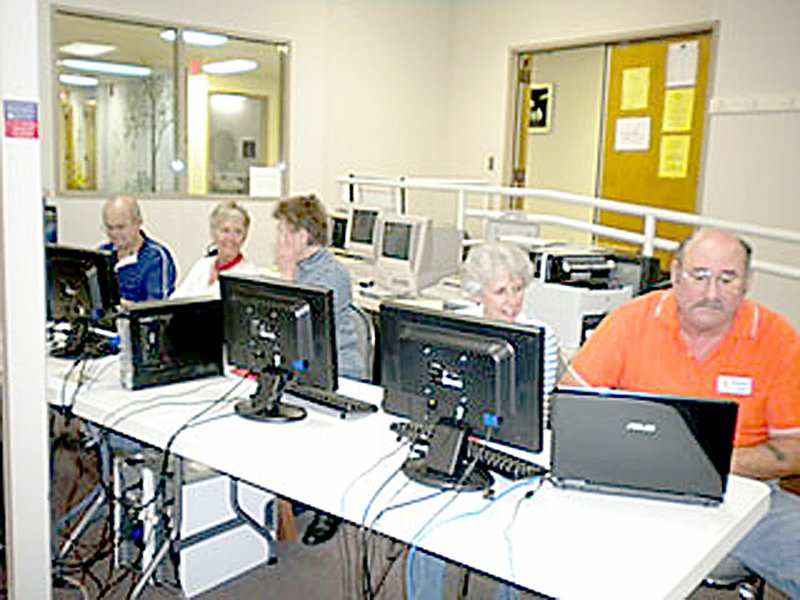A volunteer group in Bella Vista is waiting to help local residents with computer issues. The Bella Vista Computer Club can work on hardware and software problems and offers help clinics and classes.
The club started in 1995, current president Joel Ewing said. He's only been involved for a few years, but other members have been in Bella Vista long term. There are more than 100 members, he said. But with the loss of two key members over the past few years, the club is looking to grow, he said.
The club meets once a month and usually has a speaker who presents a computer topic. At the next meeting -- at 7 p.m. on Monday, Feb. 12 -- a panel of experts will be on hand to answer questions. Nonmembers are welcome to attend and bring their questions, Ewing said. Questions can also be submitted in writing on the group's website, bvcompclub.org.
Member Geri Hoerner said she learns something new every time she attends a meeting, even after years in the club. Some of the meeting presentations can be seen online at the club's website.
Volunteers with the club teach classes for members. Classes range from basic computer knowledge to understanding and using specific programs like Microsoft Excel and LastPass, a password management program.
The classes are taught in the club's John Ruehle Training Center where rows of PCs are waiting for students. The computers were purchased with grant funds members earned while volunteering at the Bella Vista Recycling Center.
The Training Center is also the site of the help clinics on the first Saturday and the third Wednesday of each month, from 9 a.m. until noon. Sometimes, Ewing said, the volunteer needs to use one of the PCs to research a problem a member brings in.
Ewing recommends that, if the problem is with a desktop computer, both the tower and the monitor should be brought in. Sometimes, fixing the issue will reconfigure the appearance of the virtual desktop, and having the monitor there will make it easier to get used to the changes. But you don't have to bring in a keyboard and mouse. The club has plenty of those components, he said.
He also reminds people that, if they want their laptop worked on, they should bring the power supply with them. They can also bring in iPhones and iPads that need help. Even if the club members aren't familiar with Apple products, they are familiar with the logical approach it takes to work on any computer product. Often they can figure out what's going wrong.
People come in with a wide variety of issues, and the club members work with about five members each session.
"There's usually someone there who knows about it or knows where to look it up," Ewing said of the help sessions. Sometimes they have to tell people their computer is "fried" and it's time to replace it, but sometimes they can get it working.
They work on both hardware and software. The most common hardware problem is a bad power supply, Ewing said, and the club keeps some spare parts on hand. The parts are often pieces of a donated computer. Sometimes volunteers use the spare parts to test a computer. For example, the easiest way to test a hard drive is to put in one you know is working and see if that brings the computer back to life.
Some of the volunteers have retired from careers in computer science. Ewing said he believes they enjoy working at the clinics because of the satisfaction they gain when they solve a problem.
"Some people like crosswords puzzles," he said, but some like problem-solving.
There are also a lot of virus problems brought to the club. A few members have even dealt with ransom demands, he said. But it's just as common for someone to come with the ransom demand but no actual malware on their computer. It's a scam, he said, that sucks in people who are afraid to look past the demand.
Another scam they see occasionally is the notice instructing users to download a program that will rid them of a virus. Unfortunately, the virus is actually in the "repair" software.
The club has a special interest group for genealogy. Members get together to talk about websites and programs that will help trace their ancestry. The group meets on the third Saturday of each month at 10 a.m. in the training room.
Membership in the club is only $20 for the first member in a household and $10 for each additional membership in the same household. Nonmembers can join at either the meeting or the help clinics.
General News on 02/07/2018

